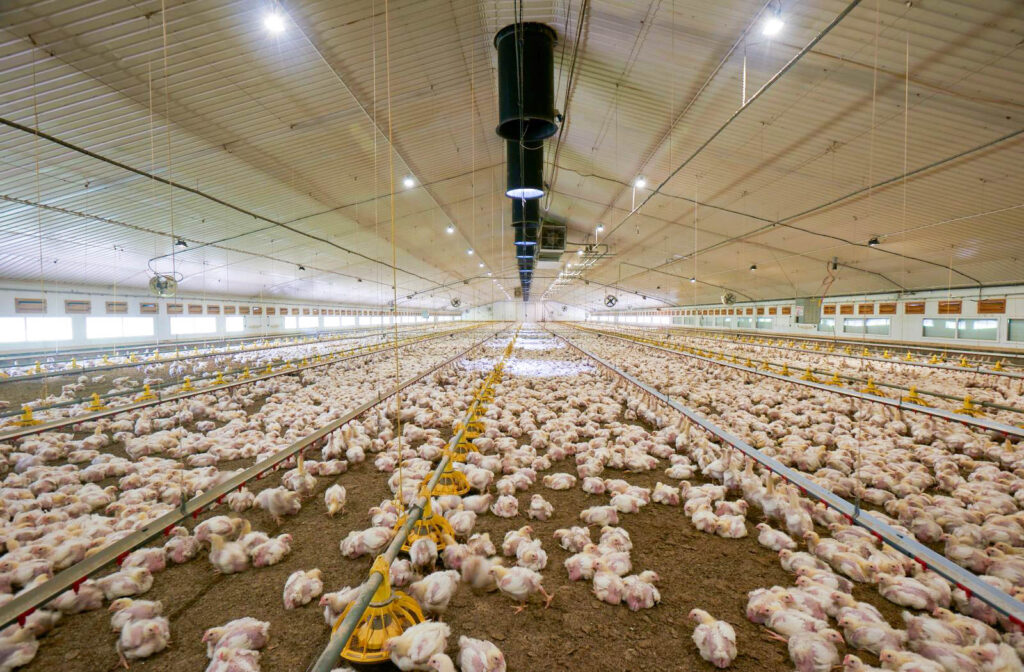New white paper underlines the importance of gut health in sustainable poultry production
26th April 2023
Intestinal health has been given critical importance when it comes to sustainable broiler production in a new white paper authored by the Monogastric Science Research Centre at Scotland’s Rural College (SRUC).

Intestinal integrity is a critical parameter in sustainable broiler production.
The paper, titled ‘Intestinal Integrity – a critical parameter in sustainable broiler production’, incorporates an extensive review of current scientific literature, led by SRUC’s Dr Marwa Hussein, and stresses the importance of closely monitoring and managing poultry intestinal health.
“The broiler industry is under pressure to meet sustainability challenges while increasing access to safe and affordable poultry meat,” said SRUC Professor Jos Houdijk, who co-authored the white paper.
He believes increased focus on intestinal health and integrity will contribute towards resolving these challenges in and advancing the poultry sector. “There have been big sustainability gains made thanks to genetic improvements, but maintaining this advantage is sensitive to gut health.
“A reduction in the Intestinal Integrity (I2) score for a current flock of broilers effectively cancels out years, if not decades of genetic selection,” he warned.
“The paper outlines the negative impact key intestinal diseases – such as coccidiosis, gizzard erosion, necrotic enteritis, and proventriculitis – can have on broiler performance through increased feed conversion ratio (FCR), morbidity and mortality,” the professor explained.
The objectives of the new white paper were to examine factors that affect broiler intestinal health, as well as to assess the value of Elanco’s Health Tracking System (HTSi) and I² index as a robust and practical means of achieving incremental improvements in this area. This will in turn positively impact bird performance and business profitability, Prof Houdijk pointed out.
Explaining how the index works, Elanco’s poultry technical consultant, Louise Ashworth, said: “The I² index is a unique, weighted index that gives flocks a score of between 0 and 100, based on 23 health conditions which are known to negatively impact intestinal health.
“For many farms, a score of 90 or below is an indication that poor intestinal health is having a significant impact on FCR and bird performance, and poorer I² scores are linked to a rise in antibiotic usage as well as an increase in the amount of feed, water and space required per kilo of poultry meat produced.”
Prof Houdijk added the paper provides clear evidence that the underlying conditions within the I² index lead to reduced feed efficiency and increased carbon footprint in poultry production.
“The consequences of this are an increased resource input for the expected output, more manure being produced, and birds taking longer to fatten – all of which contribute to the carbon footprint of poultry production.
“This white paper provides a valuable insight into why flock intestinal health matters and how the I² index can help producers improve the sustainability of poultry production,” he concluded.
The paper can be downloaded at: www.myelanco.co.uk/brand/htsi-intestinal-integrity-white-paper
